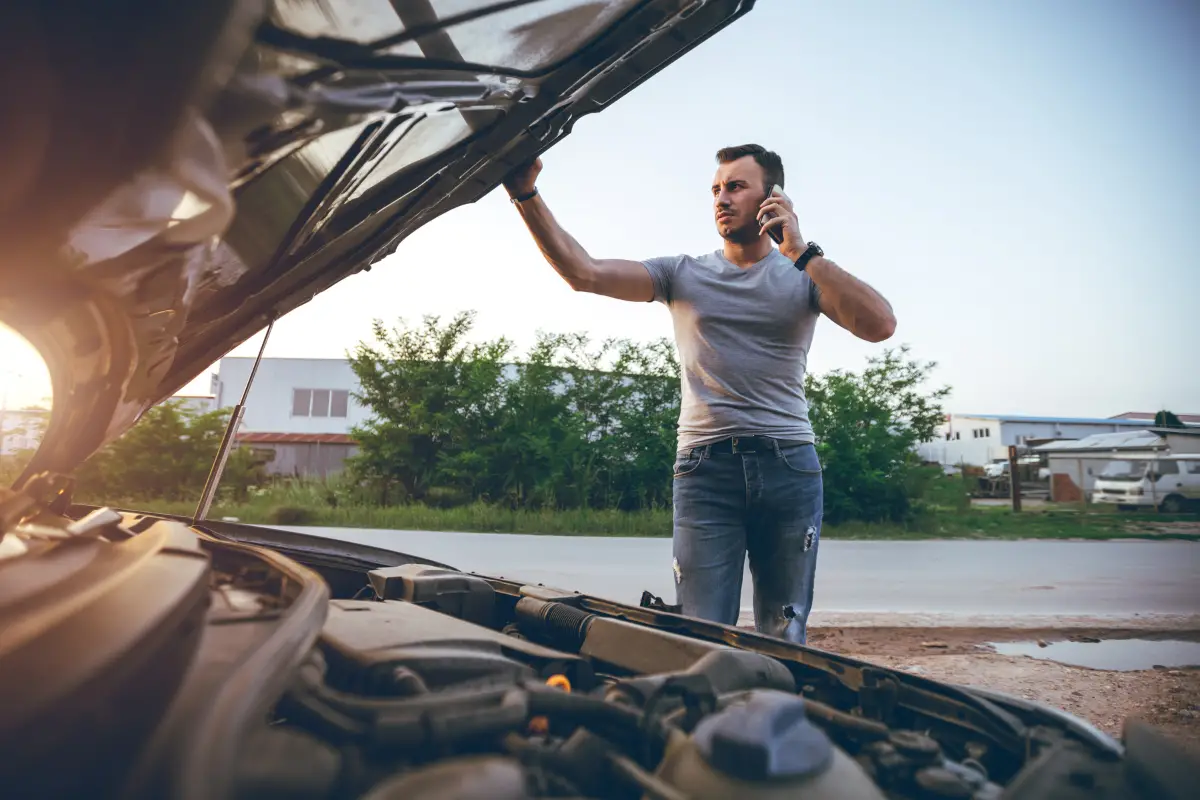RVs are great vehicles for traveling across the country to see the sites on your own terms. They also spend a lot of time off the road, which can lead to problems when you’re ready to get going.
Engines of any type aren’t overly appreciative of sitting idle for long periods of time – RV engines are no exception.
Dodge 440 engines are a popular engine for motorhomes and RVs due to their reliability. However, they’re still prone to operational issues if they’re not stored right. Here’s a look at common problems RV owners encounter and preventative maintenance tips to help the engine in your RV run right.
Article sponsored by Car Part Planet – Engines, Transmissions, and More…

Common RV Engine Problems and Their Solutions
Let’s look at some common RV engine problems – and solutions!
RV Engine Problem #1: Fuel Breaking Down
Problem: Fuel that’s left to sit for a long period of time eventually turns into varnish. When you turn over your RV’s engine after a few months, the degraded fuel runs through the engine and causes it to run poorly. It can also ruin parts of the fuel system in your RV’s Dodge engine.
Solution: Pour in a bottle of fuel stabilizer that’s designed for the type of engine that powers your RV. That is, use a fuel stabilizer that’s made for a gasoline or diesel engine. Alternatively, you can siphon or pump out the fuel, or park the RV with as little fuel in the tank as possible. Make sure to leave enough fuel to get you to the gas station when you use the RV again.
RV Engine Problem #2: Battery Drain

Problem: Many of the electrical systems in your RV can drain the battery even though it’s not in use. RV batteries also discharge themselves when not in use for long periods of time. The battery needs to have a charge in order to turn over the engine and power the electrical systems in the engine and inside the RV.
Solution: Connect your RV battery to a battery tender that delivers a trickle charge to keep the battery topped off. Another option is to disconnect the RV battery entirely so the electrical systems won’t drain the battery over time.
When you leave your RV for an extended duration, turn all breakers to the off position. This helps you avoid accidentally leaving a light on and draining the battery.
RV Engine Problem #3: Rodents
Problem: Vermin have a need to chew on things to keep their teeth worn down, and the plastic surrounding spark plug wires are a popular choice for rodents. They also like to nest in the engine of an RV because the vehicle sits for long periods of time. You want to take action to keep critters out of your engine and avoid a costly repair.
Solution: Spray your engine with a rodent repellent designed for the task. Leaving the hood of your RV’s engine bay open can also help deter rodents from settling in.
If you have a serious problem with rodents, look into wrapping your RV’s wires with a special electrical tape that’s coated with capsaicin. This ingredient is hot and spicy, and rodents don’t like it.
RV Engine Problem #4: Transmissions

Problem: The transmission on an RV is put under a lot of pressure to perform as it’s likely to be driven in mountainous regions and asked to haul heavy loads across thousands of miles. Add in the fact an RV is expected to perform normally after sitting for months at a time in various weather conditions, and you get leaks in the transmission seal.
Solution: Get the transmission checked out by a mechanic who’s familiar with transmission maintenance on RVs. On average, a transmission can reach over 100,000 miles without needing major repair. That being said, you can get your transmission to go further with regular maintenance. The mechanic’s job is to find leaks and determine if it’s a serious issue or one that can be handled by regularly checking and topping off the transmission fluid level.
RV Engine Problem #5: Engine at The End of its Lifespan
Problem: A properly maintained RV can last and stay usable for decades, but the engines sometimes don’t last as long as the chassis. The Dodge 440 and Cummins diesel used in Dodge vans are strong performers, but even these engines eventually wear out and need to be rebuilt or replaced.
Solution: Replacing the original Dodge engine with a rebuilt Dodge engine serves to extend the lifespan of your RV’s chassis and gives you improved performance from the engine. A rebuilt Dodge 440 that has modern equivalents of the original parts can put out more horsepower than the original while delivering more power for better acceleration. You also get the opportunity to start over fresh with a rebuilt Dodge engine and avoid costly maintenance because a rebuilt RV engine is as good as brand new.
Car Part Planet is a one-stop shop for all of your drivetrain replacement needs. Whether you are looking for a used engine, remanufactured engine, used transmission, remanufactured transmission, or just some friendly advice on your DIY replacement project, they’ve got you covered.
Armed with solutions to common RV engine problems, we hope that you spend more time out on the road and less time on the side of it. Let us know if you’ve ever had RV engine problems in the comments.